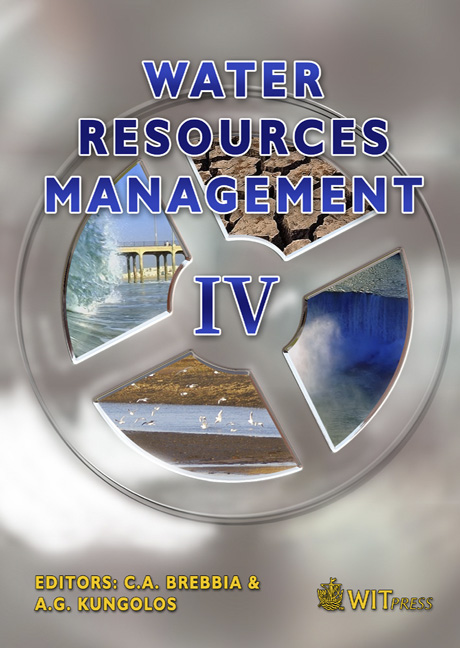Groundwater Quality And Sustainability In Granitised-fractured Aquifers, Pallisa District, Eastern Uganda
Price
Free (open access)
Transaction
Volume
103
Pages
10
Published
2007
Size
1,089 kb
Paper DOI
10.2495/WRM070251
Copyright
WIT Press
Author(s)
J. Nyende
Abstract
The sustainability of the granitised aquifer system of the Kyoga catchment has been threatened by the ever increasing population that will lead to over exploitation of the groundwater resource. Uganda’s freshwater is considered a key strategic resource which is vital for sustaining life, promoting development and maintaining the environment. The increasing pressure from domestic, industrialization and urbanization, agricultural as food security and hydropower uses due to population and industrial growth combined with environmental degradation and extreme poverty are relatively putting pressure on the quantity and quality of water resources. Groundwater quality in Uganda is originally influenced by the rainwater in some areas and the Nile, which recharge the aquifers from where boreholes are drilled and dug up wells. Boreholes data show the highest degree of mineralisation with relative enrichment of nearly all tested elements and is due to the ability of aggressive groundwater to decompose the relatively fresh minerals in the bedrock fractures. Plots of boreholes situated in these aquifers of Pallisa represent a regime where there is calcium enrichment, which is typical of lime dosing to neutralize acid waters. The plot of water contains approximately 70% Ca, 70% Mg, 80% TAlk, 10% Cl and 10% SO4. This is typical of calcium/magnesium bicarbonate waters. Higher concentrations of aluminium are observed in the regolith while low levels in the bedrock. The significantly lower level of aluminium in the bedrock aquifer provide further support for the notion of relatively limited hydraulic interaction between the two units. An urgent need for a holistic approach to water resources management is required to protect the available water resources and to satisfy the sometimesconflicting demands while ensuring sustainable water resources development. Collection and analysis of water resources related data and information is one of the priority areas for the water resources management sub-sector. Keywords: groundwater quality, sustainability, rock interaction, fracturedbedrock, wastewater, basement complex, Eastern Uganda, degree of mineralisation, sodium absorption ratio, regolith, granitised.
Keywords
groundwater quality, sustainability, rock interaction, fracturedbedrock, wastewater, basement complex, Eastern Uganda, degree of mineralisation, sodium absorption ratio, regolith, granitised.





